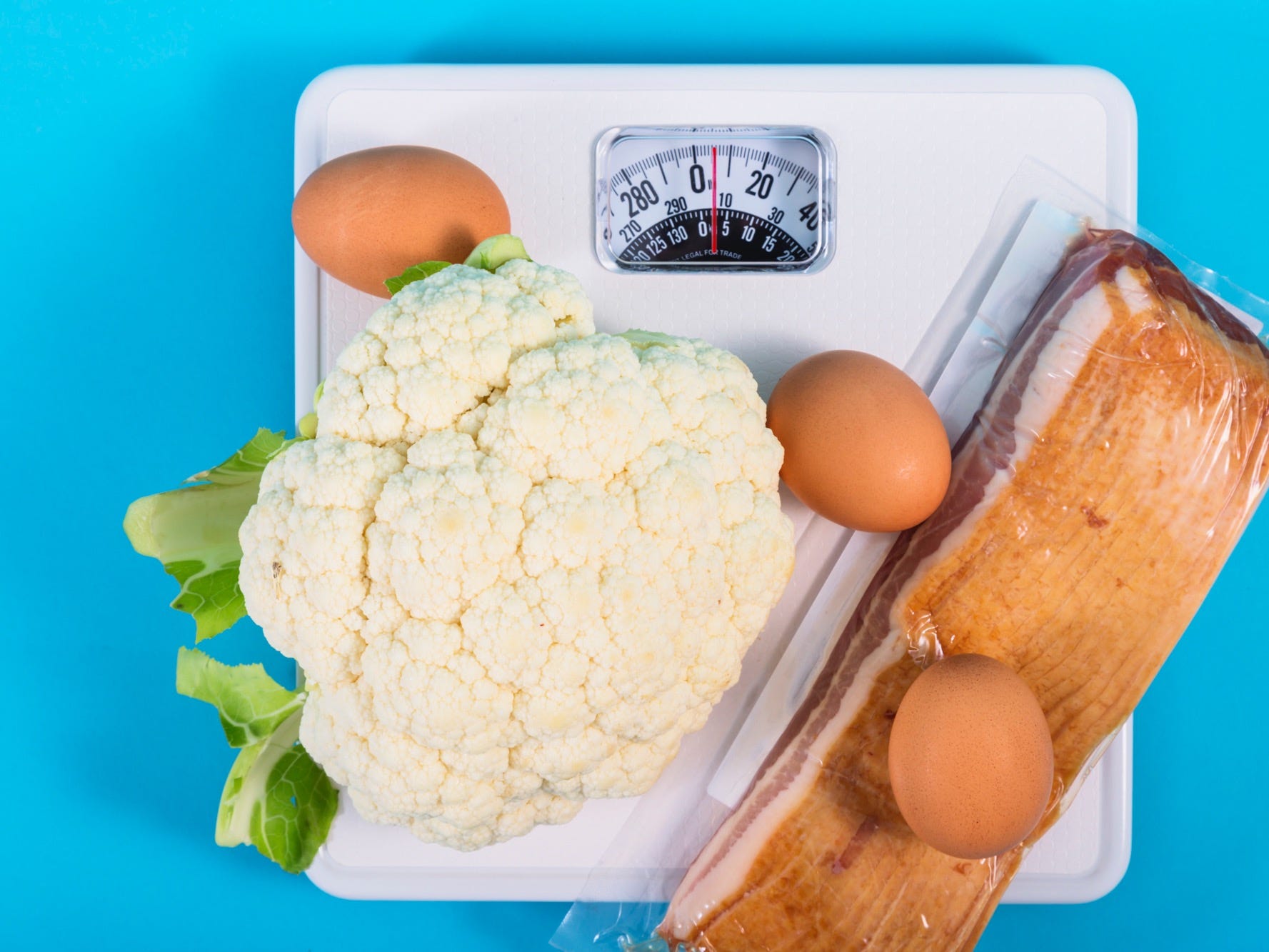- The low-carb high-fat keto diet is popular for weight loss, but is also studied for its effects on chronic health issues like diabetes.
- A 57-year-old woman was put on a keto and intermittent fasting diet by her doctors.
- Within 4 months her diabetes was controlled without medication, and without losing weight, a new study reports.
- Visit Insider’s homepage for more stories.
Advocates of the keto diet have long claimed the low-carb, high-fat eating plan offers a wealth of benefits for metabolic health, helping people lose weight to gain more energy and reduce their risk of some diseases.
Intermittent fasting, too – limiting food intake to a specific time period – has also been touted for its weight loss and life-span extending potential.
Those theories got some validity last week from a new case study that found a 57-year-old woman was able to control her type 2 diabetes, and eventually ditch her medication, by switching onto a keto-intermittent fasting diet.
What’s more, that was possible without losing weight, according to the study published July 7 in BMJ Case Reports.
Why it works
Previous research has shown keto treats diabetes by preventing blood sugar from rising, since diabetics don't produce enough insulin naturally to regulate their glucose levels.
"The most impactful thing on your blood glucose is the amount of carbs in your diet. The low-carb diet is effective because it lowers the insulin load," Dr. Mark Cucuzzella, previously told Insider in an interview. "Insulin is the master switch."
How doctors devised the patient's diet
The patient consumed 80% of her daily calories from fat, and 5% as carbohydrates, for a total of 1,500 total calories per day.
She fasted all day on Monday, Wednesday, and Friday for the first two weeks of the diet, later adjusting to 42-hour fasts on Monday and Wednesday, and 16 hours on Friday.
Once the patient's blood sugar was under control, she reduced her fasting to 16 hours at day, with 3 24-hour fasting periods per month. During the fasting period, she drank water, coffee, and bone broth. When not fasting, she ate two meals a day with no snacks.
The only downsides were a bout of 'keto flu,' and the two-day fasts
Aside from a week-long adjustment phase, commonly known as the keto flu, the patient said she didn't have any difficulty sticking to the diet plan.
She said she plans to continue indefinitely, but found it difficult to maintain the 42-hour fasts. The 16-hour fasts were easier to fit into her daily life.
She stopped taking her diabetes medications after 1 month
Four weeks into the diet, the patient was able to stop taking medications such as metformim, an antihypertensive and a statin, while still being able to control her blood sugar levels.
Four months into the program, her blood sugar levels had significantly improved, even without the medications.
Major dietary changes should always be supervised by a medical professional
These results add to a growing body of evidence that nutrition can be a promising therapy for chronic illnesses. However, it's always best to consult a medical professional before making extreme changes to your diet.
The keto diet is generally regarded as safe, but some experts caution that the high saturated fat and cholesterol could be risky for heart health, and we still don't know enough about the long-term consequences.
Intermittent fasting is also generally safe, particularly in shorter durations like 16 hours a day. Longer fasts of 24 hours or more, though, can have serious side effects like disrupting sleep and mood and increasing stress and, some nutritionists argue, may not be worth the risks.
Read more:
The keto diet may help people with diabetes control their blood-sugar levels
